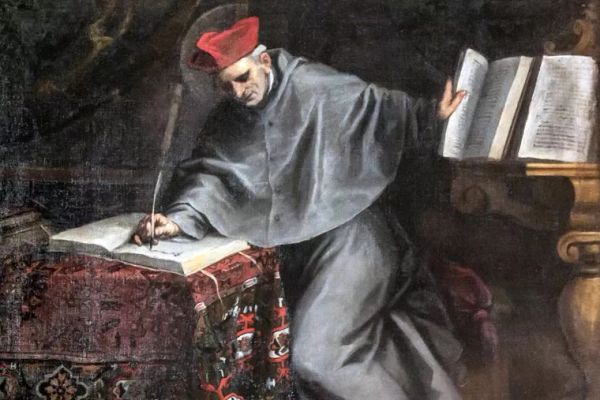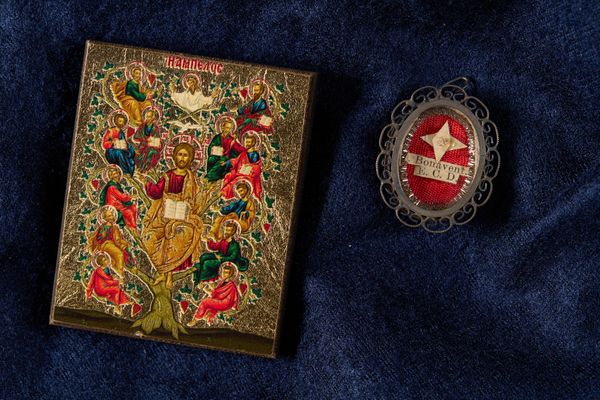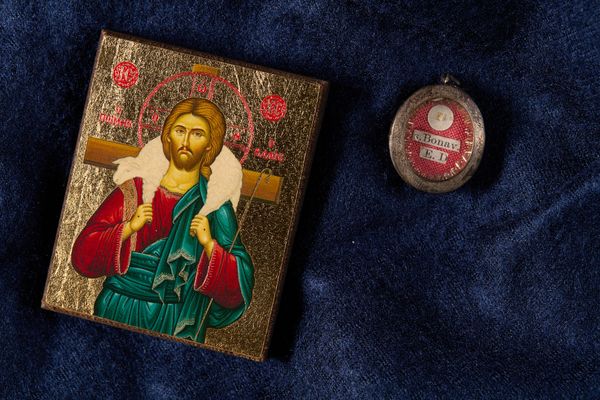St. Bonaventure, known as "the seraphic doctor," was born at Bagnoregio, in the Lazio region of central Italy, in 1221. He received the name of Bonaventure in consequence of an exclamation of St. Francis of Assisi, when, in response to the pleading of the child's mother, the saint prayed for John's recovery from a dangerous illness, and, foreseeing the future greatness of the little John, cried out "O Buona ventura"-O good fortune!
At the age of twenty-two St. Bonaventure entered the Franciscan Order. Having made his vows, he was sent to Paris to complete his studies under the celebrated doctor Alexander of Hales, an Englishman and a Franciscan. After the latter's death he continued his course under his successor, John of Rochelle. In Paris he became the intimate friend of the great St. Thomas Aquinas. He received the degree of Doctor, together with St. Thomas Aquinas, ceding to his friend against the latter's inclination, the honor of having it first conferred upon him. Like St. Thomas Aquinas, he enjoyed the friendship of the holy King, St. Louis.
At the age of thirty-five he was chosen General of his Order and restored a perfect calm where peace had been disturbed by internal dissensions. He did much for his Order and composed The Life of St. Francis . He also assisted at the translation of the relics of St. Anthony of Padua. He was nominated Archbishop of York by Pope Clement IV, but he begged not to be forced to accept that dignity. Gregory X obliged him to take upon himself a greater one, that of Cardinal and Bishop of Albano, one of the six suffragan Sees of Rome. Before his death he abdicated his office of General of the Franciscan Order. He died while he was assisting at the Second Council of Lyons, on July 15, 1274.
Credits:
Discriptions of saints lives and biographies have been excerpted, summarized, or compiled from
Franciscan Media,
CatholicSaints.Info,
Catholic Online, and
Wikipedia.


